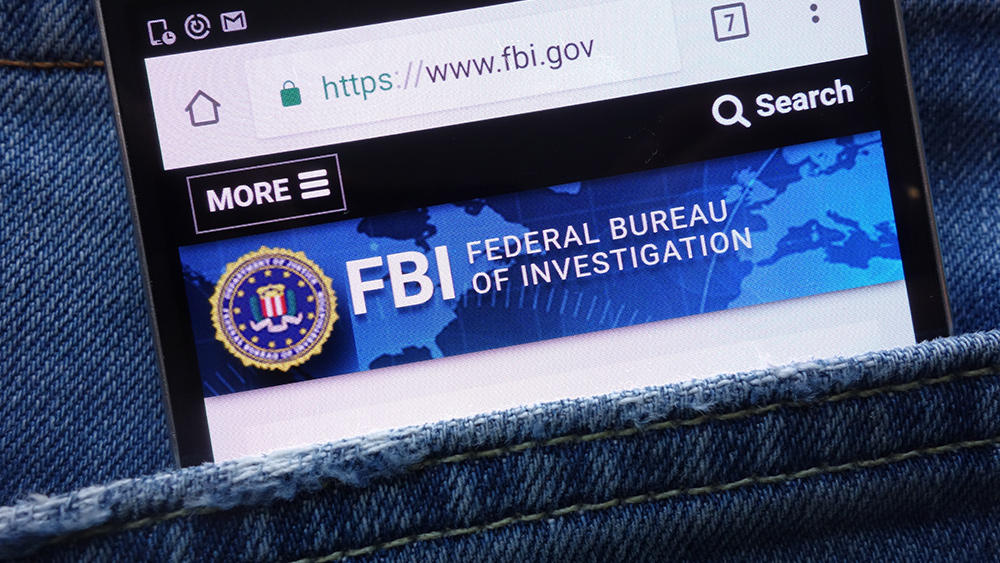 Parler
Parler Gab
Gab
PayPal Holdings Inc. (NASDAQ: PYPL), in partnership with ADL (the Anti-Defamation League), today announced a new partnership initiative to fight extremism and hate through the financial industry and across at-risk communities. This is the latest effort by PayPal in combating racism, hate and extremism across its platforms and the industry. Through this collaboration, PayPal and ADL have launched a research effort to address the urgent need to understand how extremist and hate movements throughout the U.S. are attempting to leverage financial platforms to fund criminal activity. The intelligence gathered through this research initiative will be shared broadly across the financial industry and with policymakers and law enforcement.This arrangement ought to arouse enormous concern, not just from conservatives, but anybody who cares about the danger totalitarian woke capital poses to the basic liberties of Americans. At a minimum, simple prudence requires that conservative groups do everything they can to decouple their financial well-being from PayPal’s services. But more generally, rank and file users should look elsewhere as well, and Republican lawmakers should take interest in what is unfolding. As will soon become clear, PayPal’s deal with the disgraced ADL ought to be treated as seriously as a massive data breach or hack of its users’ information. Earlier this year a hacker going by the moniker “God User” posted information on over over 700 million LinkedIn profiles on the DarkWeb; in 2019 Facebook experienced a devastating data breach concerning over 500 million users, whose information appeared online. Paypal sharing its user data with a radical political organization with a possible history of illegal activity must be treated with no less seriousness. In fact, the situation is far worse, as PayPal is intentionally inflicting this vulnerability on its users; unlike the data breaches described above, PayPal seems to have no intention of fixing the situation. Both PayPal and the ADL have been remarkably cagey about the exact details of their collaboration. In particular, PayPal has done nothing to reassure consumers that it won’t be turning over enormous amounts of sensitive information to the ADL. There is certainly no reason to think PayPal has moral qualms about empowering the ADL or about weaponizing its business for political ends. PayPal CEO Dan Schulman is one of the most aggressively political CEOs in America. In 2016, Schulman canceled a planned 400-job expansion into North Carolina over the state’s transgender bathroom bill. The service has banned Alex Jones and Gab.com from using its services. And after January 6, PayPal cut off payments to GiveSendGo, the Christian crowdfunding site that allowed users to donate money for the legal defense of Kyle Rittenhouse and January 6 protesters. PayPal’s own policies provide zero reassurance that the company refrains from using and abusing customer data however it wishes. The company’s “privacy” policy is anything but, as it merely lists all the information about users that PayPal reserves the right to gather and preserve.
Here are the kinds of personal data that we may collect when you create an account or use our services: 1. Information that identifies you, for example:PayPal suddenly announcing a major collaboration with the ADL would be worrisome enough if the ADL were a neutral organization. But the ADL is anything but. The ADL traffics on its early history combating anti-Semitism after the lynching of Jewish factory owner and convicted murderer Leo Frank in 1913. But in recent years, the ADL has warped into something far different than a simple Jewish defense organization. The ADL has not merely become pro-censorship and ideologically left-wing. It’s worse than that. The ADL can’t simply claim to be an advocacy group. An analysis of the historical record reveals that the ADL has a long history of using underhanded and even illegal tactics against its enemies, including full-blown espionage, theft, and surveillance. Furthermore, much of the ADL’s work, whether legitimate or illegitimate, is done on behalf of a foreign power. Today, the ADL is led by former Obama Administration apparatchik Jonathan Greenblatt. Before his stint with Obama, Greenblatt was literally a bottled water salesman, who hit on the genius idea that you could sell bottled water for $2 a bottle as long as five cents of the purchase price went to fund charity programs in Africa. Amusingly, it turned out that by bottling water in Southern California and shipping it elsewhere, Greenblatt’s company was exacerbating water issues in America’s most drought-prone region. In 2014, Greenblatt took his at-all-costs “water bottle salesman mindset” over to the ADL and since then has substantially shaped the group’s ideological tenor. On its website, the ADL claims to be a “passionate” supporter of American free speech, and to oppose efforts at censorship. This is a lie. Under Greenblatt’s leadership, perhaps no left-wing non-profit has more emphatically swerved in a totalitarian direction for the sake of crushing its ideological foes. The ADL’s most famous push for ideological control came in April, when Greenblatt demanded that Fox cancel Tucker Carlson’s show for describing mass immigration as the “replacement” of existing American citizens. But that was simply one demand among many for Greenblatt, and that particular demand was notably much less successful than many of the ADL’s other censorship efforts. Even before January 6, Greenblatt was issuing sharp demands for widespread Big Tech-led censorship of “offensive” statements:2. Records and financial information, for example:
- First and last name
- Address
- Phone number
- IP address
- Information collected from cookies or other tracking technologies
3. Personal characteristics, for example:
- Social Security Number
- Government-issued identification
- Bank account and routing numbers
- Credit and debit card information
- Financial information
4. Commercial information, for example:
- Age
- National origin
- Disability
- Citizenship
- Military status
5. Internet or network activity, for example:
- Online shopping cart information
- Purchase history
6. Geolocation data, for example:
- Interactions with our services or sites
- Shopping history
7. Audio, electronic, visual, biometric, or similar information, for example:
- Global Positioning System (GPS) information when you give us permission through your device settings
- IP-based geolocation
8. Professional or employment information, for example:
- Call recordings when you talk to customer service
- Voice identification, when you consent to this biometric method of authentication
- Photo IDs and profile pictures you provide
9. Information we infer based on your personal data, for example:
- Business information, contact emails and phone numbers
- Tax IDs
- Fraud and risk assessments
- Personalization preferences
Everyone has a right to expression free from government regulation. But press outlets and social media aren’t public places; they’re private businesses. Both have an ethical obligation to society and a fiduciary responsibility to their shareholders. No newspaper is required to publish a particular article; most newspapers have editors who safeguard against libel or hate. Moreover, access to social media platforms is a not a legal right, it is a privilege. Abuse it, and you should lose it.But Greenblatt doesn’t just believe in companies making the free decision to host or ban certain ideas. He also believes in mobilizing massive pressure campaigns to bring corporations in line with his censorship agenda. Over the summer of 2020, Greenblatt spearheaded the Stop Hate for Profit campaign, in which hundreds of companies were pressured to stop advertising on Facebook until it changed its algorithm and moderation policies to address “systemic bias” and remove “hateful” content. On January 7, the ADL demanded that all Qanon-associated accounts on Twitter be banned. Countless accounts were immediately purged. A short time later, the ADL attacked Amazon for allowing third-party sellers to sell Qanon, Oath Keeper, and Three Percenter merchandise. Not only that, but the group pressured Cloudfare and Epik to stop providing webhosting services for “extremist platforms like Gab.” That’s the 2021 ADL in a nutshell: Claiming to support “free speech” while relentlessly fighting for a world where powerful corporations collude to prevent the “wrong” ideas from appearing on social media, and banning “badthinking” people from creating their own independent websites. But the list of misdeeds of the crooked ADL doesn’t stop there. The ADL doesn’t just believe in making sure that it can say whatever it wants while its foes are silenced. It also believes in making sure the right to dox is reserved exclusively to itself and its allies. Last January, the ADL published an article explaining that “Doxing Should Be Illegal,” but “Reporting Extremists Should Not.”
Many people define doxing as posting someone’s personal information online. But doxing as a blanket term threatens to ignore the crucial difference between criminal doxing on the one hand, and, on the other hand, lawfully identifying people online, where the purpose may be to protect others, track down extremists or report on a public interest story. … [U]nlawful doxing is different from the work that activists and researchers—including those at ADL—are now engaging in to identify extremists and help law enforcement agencies investigate the rioters who violently stormed the Capitol. These activists and researchers are not operating with a criminal mental state.In other words, when the ADL or “activists” it agrees with dox their enemies online they are operating in the right “mental state,” so no matter the consequences of their behavior it is always good. But if the ADL’s opponents do the same behavior, it is by definition done with a “criminal mental state,’ and it can credibly be a criminal offense. It’s no surprise that, to justify this kind of power grab, the ADL has been aggressively hysterical about the January 6 incident, consistently describing it as an “insurrection.” And since this so-called “insurrection,” ADL’s ambitions to control American society have only metastasized. The US military has become one of the ADL’s chief targets in 2021, and they are going so far as to seek an ideological purge of the armed forces. In a March blog post, the ADL wrote that military regulations must be revised to ensure that soldiers can be disciplined not merely for belonging to certain banned groups, but for holding banned ideas:
Military regulations should also reflect, insofar as it is possible, the nature of modern extremist movements. Regulations that only refer to extremist groups or organizations, for example, may not be sufficient to deal with adherents of extremist movements who do not belong to any specific group. Language that also refers to movements or causes, or that refers to activities as well as groups, is more likely to be more effective.In May, the Washington Post quoted the ADL’s Mark Pitcavage in support of the idea that the military should issue sweeping bans on even “interacting” with “extremists” online:
Officials reviewing military rules on extremism, which do not reflect the amorphous, largely online nature of today’s far right, also are considering a move that would ban “mere membership” in such groups.
Some activists argue that the prohibitions should be more sweeping because, in their view, even interactions with extremists in an online forum, for example, constitute active participation in potentially violent movements.
“It’s not so much their opinion; it’s them being involved with other extremists,” said Mark Pitcavage, an expert on domestic extremism at the Anti-Defamation League, which tracks hate groups.
What counts as an “extremist?” With the Biden Administration in charge, the ADL is sure to play a major role in deciding it, so it’s worth recalling some of the things they’ve warned are racist or offensive in recent years:
Okay Signs The “okay” hand sign as a “racist” meme was concocted by 4chan as a troll, to indicate how it was trivially easy to convince the left that anything was racist. Fascinatingly, the ADL openly knows this was the purpose, but they decided to take the bait anyway and create an entire page about the racist use of the okay sign.
Opposing Antifa
The ADL has occasionally tried to show a smidgen of neutrality by criticizing Antifa, but buried in their anti-“hate” database it’s clear how they actually feel. Considered on par with actual racist or violent rhetoric, the League simply classifies the entire category of “anti-Antifa” imagery as hate-based. The tone of its writing makes it clear how they really feel: Antifa are fundamentally heroic and laudable, and those who stand against them are villainous. But don’t take our word for it:
The “okay” hand sign as a “racist” meme was concocted by 4chan as a troll, to indicate how it was trivially easy to convince the left that anything was racist. Fascinatingly, the ADL openly knows this was the purpose, but they decided to take the bait anyway and create an entire page about the racist use of the okay sign.
Opposing Antifa
The ADL has occasionally tried to show a smidgen of neutrality by criticizing Antifa, but buried in their anti-“hate” database it’s clear how they actually feel. Considered on par with actual racist or violent rhetoric, the League simply classifies the entire category of “anti-Antifa” imagery as hate-based. The tone of its writing makes it clear how they really feel: Antifa are fundamentally heroic and laudable, and those who stand against them are villainous. But don’t take our word for it:
White supremacist anti-left (or sinistrophobic) symbology especially targets far left and anarchist activists who have dedicated themselves to actively opposing and exposing white supremacists. In the 1990s and 2000s, for example, white supremacists created images that targeted anti-racist skinheads known as SHARPS (for “Skinheads Against Racial Prejudice”), such as placing a red circle and diagonal bar, or a gun sight, on top of an image of a Trojan helmet (a common SHARP symbol). More recently, white supremacists have created similar imagery directed against antifa (short for anti-fascist), the loosely-organized left-wing and anarchist anti-racist movement. White supremacists have coined the term “anti-antifa” for themselves.Read more at: Revolver.news
Kari Lake: Katie Hobbs stole elections to protect cartels trafficking drugs, humans across border
By Belle Carter // Share
China could claim parts of the moon, NASA head warns
By Ramon Tomey // Share
When the FBI attacks critics as “conspiracy theorists,” it’s time to reform the bureau
By News Editors // Share
Virgin Islands AG fired three days after suing JPMorgan over Jeffrey Epstein
By News Editors // Share
New browser extension replaces Wikipedia pages in search results with Encyclosphere pages
By News Editors // Share
Governments continue to obscure COVID-19 vaccine data amid rising concerns over excess deaths
By patricklewis // Share
Tech giant Microsoft backs EXTINCTION with its support of carbon capture programs
By ramontomeydw // Share
Germany to resume arms exports to Israel despite repeated ceasefire violations
By isabelle // Share










